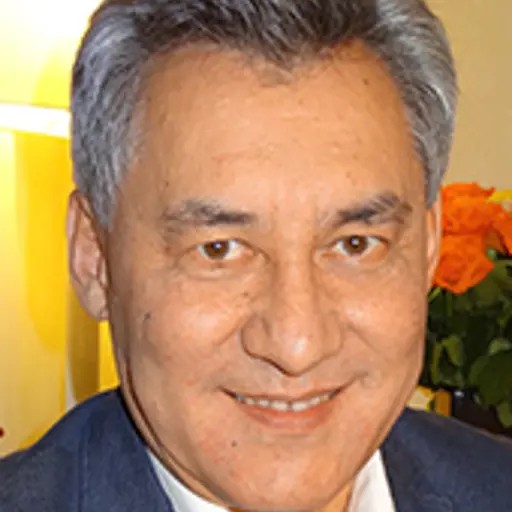
After almost three decades at Chalmers, Serik Sagitov, head of the Division of Applied Mathematics and Statistics and professor of Mathematical Statistics, is retiring. Raised in Kazakhstan and having completed his doctoral studies in Moscow, he moved permanently to Chalmers University of Technology in 1997.
“Looking back, I am very happy that I ended up in Sweden and at Chalmers,” Serik says.
A lifelong passion for mathematics
Serik’s interest in mathematics began early, inspired by his father, a professor of theoretical mechanics. He attended a specialised mathematics and physics school in what was then Alma-Ata, surrounded by equally motivated peers. After studying at the prestigious Faculty of Mechanics and Mathematics at Moscow State University, he earned his PhD in probability theory from the Steklov Institute in 1983.
Following several years of research collaboration with Professor Peter Jagers, including postdoctoral visits at Chalmers, Serik settled in Sweden in 1997. There, he encountered an educational culture vastly different from the one he had grown up with. In the Soviet system, the most motivated students were placed in elite classes to achieve maximum subject depth. In Sweden, equality and flat hierarchy are core values.
He highlights the trust that permeates Swedish society - the belief that people do their best without trying to cheat - as both a strength and a striking contrast to his upbringing.
“Everything has its advantages and disadvantages, but I see the logic in the Swedish system of trust and usually choose the Swedish side if I have to,” says Serik.
Cancer research
Alongside his role as division head, Serik works on mathematical models focusing on branching processes which descres how populations grow, decline, or die out over time. These models are being applied in an interdisciplinary project with colleague Eszter Lakatos and cancer researcher Anders Stålberg at Sahlgrenska, aiming to develop more precise methods for detecting cancer cells.
Chalmers is a place where the working environment feels like a family—marked by care, trust, and reasonable expectations.
AI and complex thinking
During the conversation, the topic naturally shifts to AI. It is a transformative force and “a tsunami” that universities and educators have yet to fully adapt to, he says. Soon, another key concept emerges, complexity, and to understanding how nature, phenomena, and people connect within complex systems. But complexity also demands change, which many find challenging.
A developed view of excellence
After decades in academia, Serik believes excellence is about far more than the number of publications or citations. He sees Chalmers’ future in combining a strong research environment with outstanding teaching and a healthy work culture. He calls for greater recognition of teaching excellence in hiring and promotion while warning against underestimating AI’s impact on education.
How should teaching evolve for a generation accustomed to short videos, AI, and rapid information? For Serik, true learning means not just keeping up with knowledge but cultivating human qualities such as curiosity, empathy, and the ability to ask Socratic questions. He sees great promise in Chalmers’ commitment to interdisciplinarity, lifelong learning, and open courses for the public.
“We should be known as the best in Sweden at teaching mathematics. We must be forward-thinking and willing to adapt teaching formats to the times and to technological developments. A unified campus and a more focused range of master’s programmes are positive steps.”
If youth knew, if age could
Serik describes retirement as a psychological transition. During the long summer holiday, he had a taste of life without fixed duties - realising again and again that meaning is tied to responsibility. He plans to continue his research as professor emeritus and to mentor younger researchers and students, guided by his belief in leaving one’s comfort zone to grow. His family, including three school-age daughters, is a major source of motivation. He is even considering teaching at secondary school level to inspire more young people to take on mathematics’ challenges.
Towards the end on the interview, Serik’s journey perceives as not just an academic success story - but also a testament to how international experience, interdisciplinary thinking, and respect for human values can inspire academia.
“Chalmers is a place where the working environment feels like a family marked by care, trust, and reasonable expectations. We are not perfect, but we always try to do our best and resolve conflicts constructively,” he concludes.
- Professor Emeritus, Mathematical Sciences
